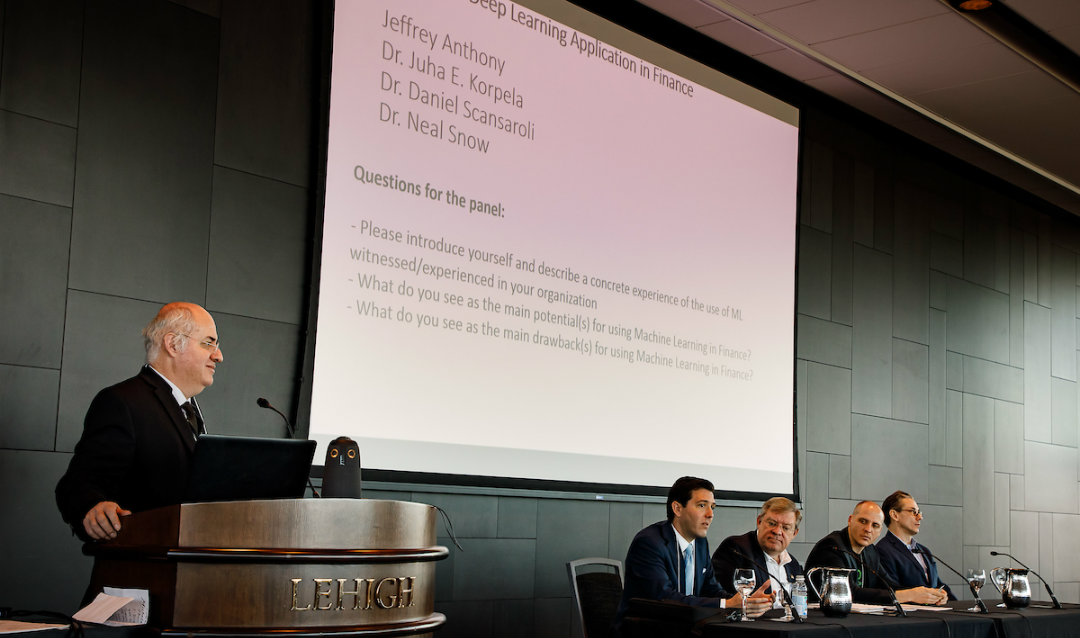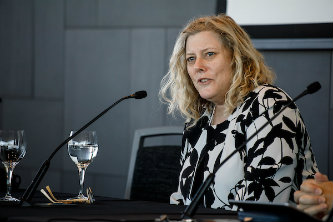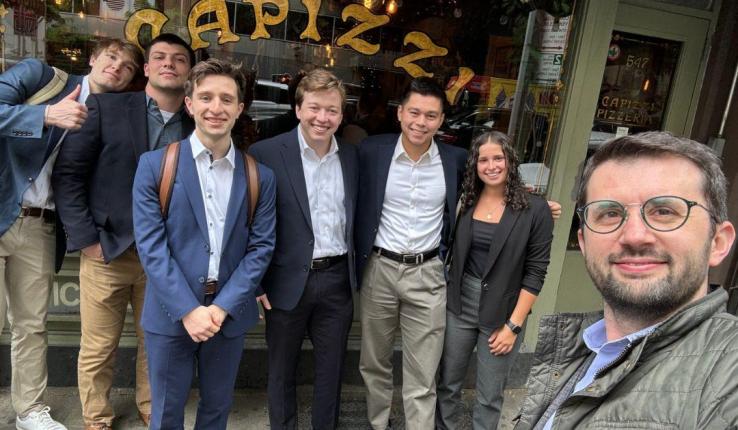She said banking regulators struggle with their ability to regulate shadow banks, which has caused concern among regulators because of the increased use of FinTech or peer-to-peer lending in mortgages and consumer credit.
“We know from studying history that most crises are on the back of the mortgage market, that housing is an important component of financial instability,” she said. “And, therefore, regulators are very concerned about shadow banking activity in that particular sector.”
A panel discussion on the “Impact of Technology on Hiring in the Financial Industry” centered on the finance jobs of the future and, with the ongoing technological advancements being made in the financial services industry, how students can better prepare for the workforce.
Joining the panel were Daniel Scansaroli ’05, ’06G, ’09G, ’11Ph.D., head of Portfolio Construction & Modeling and managing portfolio strategist at BlueMountain Capital; Michael Liebman ’88, director of business intelligence for Bloomberg LP; John Savage ’86, vice president of data science for Medidata Solutions; Troy Adair, professor of practice, College of Business; and Rebecca Wang, assistant professor of marketing, College of Business.
The panelists discussed how technological advancements have led to both the elimination of jobs and the creation of new jobs that revolve around technology. Scansaroli said that the new jobs require individuals to analyze models and algorithms.
“You're now expected to come in and be everything from a computer scientist to a statistician to a data engineer,” Scansaroli said. “Now, it doesn't mean that you're an expert in all those things—in fact, most of these individuals are not, but they have a broad palette of skills that they draw on, and the people who are experts in one particular area are rising to the top as being the most successful.”
The panelists stressed the importance of finance students having a grasp on data literacy and programming languages such as Python.
Also included in the discussion was whether coding should be a mandated course in the undergraduate curriculum in the College of Business.
“I think it's more important, as several people have said, that you learn one language and you learn it well, because the modalities and the functionalities that you learn if you know something can be done in the language you know, it's pretty easy to translate it,” Adair said.
Also joining the panel discussions at the Quant Conference were several other Lehigh faculty: Hank Korth, professor of computer science and engineering; Hector Muñoz-Avila, professor of computer science and engineering, and of cognitive science; Roberto Palmieri, assistant professor of computer science and engineering; Neal Snow, assistant professor of accounting; and David Zhang, assistant professor of management.
Also participating were Jeffrey Anthony, co-founding partner of Synaptic Consulting; Frank Van Gasbeke, a professor of practice at Middlebury College; Denis Halvadzhiev, a hedge fund quant at JPMorgan Chase; Harsh Jain, a master’s student at Lehigh who is pursuing majors in data science and financial analytics; Juha E. Korpela, founder, EcoFinSys LLC; Aziz Looman, chief analytics officer at RationalAI.com; and Stephen Strombelline, managing director at Capital Forensics Inc.
Story by Mary Ellen Alu and Kelley Barrett








